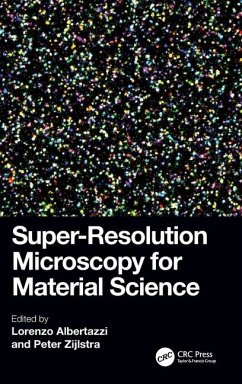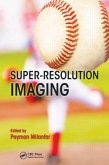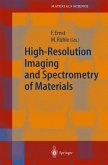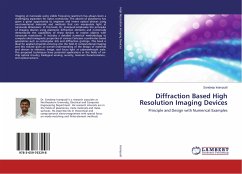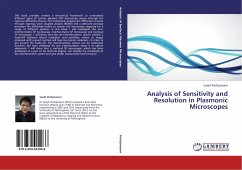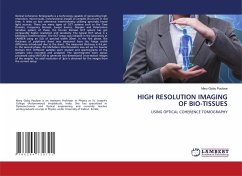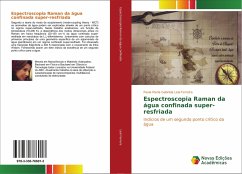Super-Resolution Microscopy for Material Science
Herausgeber: Albertazzi, Lorenzo; Zijlstra, Peter
Super-Resolution Microscopy for Material Science
Herausgeber: Albertazzi, Lorenzo; Zijlstra, Peter
- Gebundenes Buch
- Merkliste
- Auf die Merkliste
- Bewerten Bewerten
- Teilen
- Produkt teilen
- Produkterinnerung
- Produkterinnerung
This book is an ideal guide for researchers in the field of microscopy and materials science and chemistry as well as graduate students studying physics, materials science, biomedical engineering, and chemistry.
Andere Kunden interessierten sich auch für
![Super-Resolution Imaging Super-Resolution Imaging]() Super-Resolution Imaging241,99 €
Super-Resolution Imaging241,99 €![High-Resolution Imaging and Spectrometry of Materials High-Resolution Imaging and Spectrometry of Materials]() Frank Ernst / Manfred Rühle (eds.)High-Resolution Imaging and Spectrometry of Materials115,99 €
Frank Ernst / Manfred Rühle (eds.)High-Resolution Imaging and Spectrometry of Materials115,99 €![Diffraction Based High Resolution Imaging Devices Diffraction Based High Resolution Imaging Devices]() Sandeep InampudiDiffraction Based High Resolution Imaging Devices40,99 €
Sandeep InampudiDiffraction Based High Resolution Imaging Devices40,99 €![Analysis of Sensitivity and Resolution in Plasmonic Microscopes Analysis of Sensitivity and Resolution in Plasmonic Microscopes]() Suejit PechprasarnAnalysis of Sensitivity and Resolution in Plasmonic Microscopes39,99 €
Suejit PechprasarnAnalysis of Sensitivity and Resolution in Plasmonic Microscopes39,99 €![Iraqi National Super Grid Performance Reliability Iraqi National Super Grid Performance Reliability]() Yesar LaftaIraqi National Super Grid Performance Reliability26,99 €
Yesar LaftaIraqi National Super Grid Performance Reliability26,99 €![HIGH RESOLUTION IMAGING OF BIO-TISSUES HIGH RESOLUTION IMAGING OF BIO-TISSUES]() Mary Gisby PouloseHIGH RESOLUTION IMAGING OF BIO-TISSUES29,99 €
Mary Gisby PouloseHIGH RESOLUTION IMAGING OF BIO-TISSUES29,99 €![Espectroscopia Raman da água confinada super-resfriada Espectroscopia Raman da água confinada super-resfriada]() Paula Maria Gabriela Leal FerreiraEspectroscopia Raman da água confinada super-resfriada24,99 €
Paula Maria Gabriela Leal FerreiraEspectroscopia Raman da água confinada super-resfriada24,99 €-
-
-
This book is an ideal guide for researchers in the field of microscopy and materials science and chemistry as well as graduate students studying physics, materials science, biomedical engineering, and chemistry.
Produktdetails
- Produktdetails
- Verlag: CRC Press
- Seitenzahl: 250
- Erscheinungstermin: 26. März 2024
- Englisch
- Abmessung: 240mm x 161mm x 18mm
- Gewicht: 543g
- ISBN-13: 9781032103679
- ISBN-10: 1032103671
- Artikelnr.: 69483548
- Herstellerkennzeichnung
- Libri GmbH
- Europaallee 1
- 36244 Bad Hersfeld
- gpsr@libri.de
- Verlag: CRC Press
- Seitenzahl: 250
- Erscheinungstermin: 26. März 2024
- Englisch
- Abmessung: 240mm x 161mm x 18mm
- Gewicht: 543g
- ISBN-13: 9781032103679
- ISBN-10: 1032103671
- Artikelnr.: 69483548
- Herstellerkennzeichnung
- Libri GmbH
- Europaallee 1
- 36244 Bad Hersfeld
- gpsr@libri.de
Lorenzo Albertazzi is Associate Professor at Eindhoven University, The Netherlands, within the department of Biomedical Engineering. He obtained a MSc in Chemistry (2007) and a PhD in Biophysics (2011) from Scuola Normale Superiore (Pisa, Italy). He then joined Eindhoven University of Technology as postdoctoral researcher and in 2014 he became a NWO/VENI fellow. In 2015, he moved to Barcelona (Spain) to the Institute of Bioengineering of Catalonia (IBEC) to start the 'Nanoscopy for Nanomedicine' group. Since 2018 he is associate professor at TU/e leading the research group Nanoscopy for Nanomedicine. Peter Zijlstra is an Associate Professor at Eindhoven University, The Netherlands, in the research group Molecular Biosensing within the department of Applied Physics. He studied Applied Physics at the University of Twente (Enschede, The Netherlands), where he obtained his MSc degree in 2005. In 2009, he received his PhD from Swinburne University of Technology (Melbourne, Australia), where he studied the photothermal properties of single plasmonic nanoparticles with applications in optical data storage. After a postdoctoral fellowship in the lab of Prof. Michel Orrit at Leiden University (The Netherlands) he moved to Eindhoven University of Technology (TU/e, The Netherlands). He is a core member of the Institute for Complex Molecular Systems at TU/e, wherein groups from different disciplines (chemistry, physics, biomedical engineering, mathematics) collaborate on multidisciplinary research topics.
Chapter 1: Introduction to super-resolution microscopy and its importance
for materials science. Chapter 2: Localization Microscopy. Chapter 3:
Stimulated emission depletion microscopy. Chapter 4: Structured
illumination microscopy (SIM). Chapter 5: Other super-resolution
approaches. Chapter 6: Quantitative Analysis for Single-Molecule
Localization Microscopy: "From PSF to Information". Chapter 7: Single
Molecule Localization and Nanoscopy through Sequential Structured
Illumination. Chapter 8: Measuring molecule numbers in nano-scale
assemblies with single-molecule localization microscopy. Chapter 9:
Super-resolution microscopy in colloid science. Chapter 10: SRM application
to supramolecular structures. Chapter 11: Super-resolution microscopy
application to nanomedicine. Chapter 12: Super-resolution microscopy
applications to catalysis. Index.
for materials science. Chapter 2: Localization Microscopy. Chapter 3:
Stimulated emission depletion microscopy. Chapter 4: Structured
illumination microscopy (SIM). Chapter 5: Other super-resolution
approaches. Chapter 6: Quantitative Analysis for Single-Molecule
Localization Microscopy: "From PSF to Information". Chapter 7: Single
Molecule Localization and Nanoscopy through Sequential Structured
Illumination. Chapter 8: Measuring molecule numbers in nano-scale
assemblies with single-molecule localization microscopy. Chapter 9:
Super-resolution microscopy in colloid science. Chapter 10: SRM application
to supramolecular structures. Chapter 11: Super-resolution microscopy
application to nanomedicine. Chapter 12: Super-resolution microscopy
applications to catalysis. Index.
Chapter 1: Introduction to super-resolution microscopy and its importance
for materials science. Chapter 2: Localization Microscopy. Chapter 3:
Stimulated emission depletion microscopy. Chapter 4: Structured
illumination microscopy (SIM). Chapter 5: Other super-resolution
approaches. Chapter 6: Quantitative Analysis for Single-Molecule
Localization Microscopy: "From PSF to Information". Chapter 7: Single
Molecule Localization and Nanoscopy through Sequential Structured
Illumination. Chapter 8: Measuring molecule numbers in nano-scale
assemblies with single-molecule localization microscopy. Chapter 9:
Super-resolution microscopy in colloid science. Chapter 10: SRM application
to supramolecular structures. Chapter 11: Super-resolution microscopy
application to nanomedicine. Chapter 12: Super-resolution microscopy
applications to catalysis. Index.
for materials science. Chapter 2: Localization Microscopy. Chapter 3:
Stimulated emission depletion microscopy. Chapter 4: Structured
illumination microscopy (SIM). Chapter 5: Other super-resolution
approaches. Chapter 6: Quantitative Analysis for Single-Molecule
Localization Microscopy: "From PSF to Information". Chapter 7: Single
Molecule Localization and Nanoscopy through Sequential Structured
Illumination. Chapter 8: Measuring molecule numbers in nano-scale
assemblies with single-molecule localization microscopy. Chapter 9:
Super-resolution microscopy in colloid science. Chapter 10: SRM application
to supramolecular structures. Chapter 11: Super-resolution microscopy
application to nanomedicine. Chapter 12: Super-resolution microscopy
applications to catalysis. Index.

